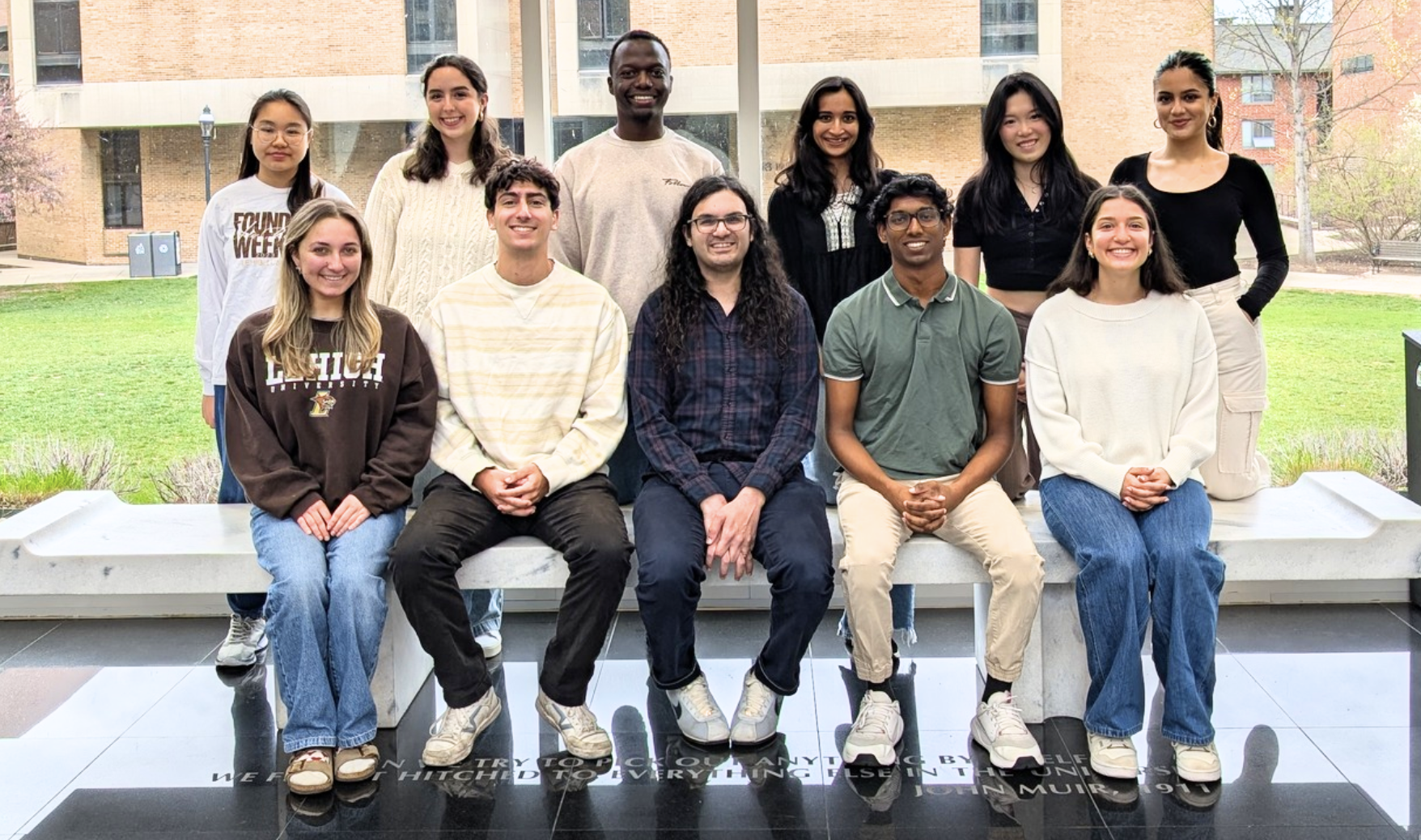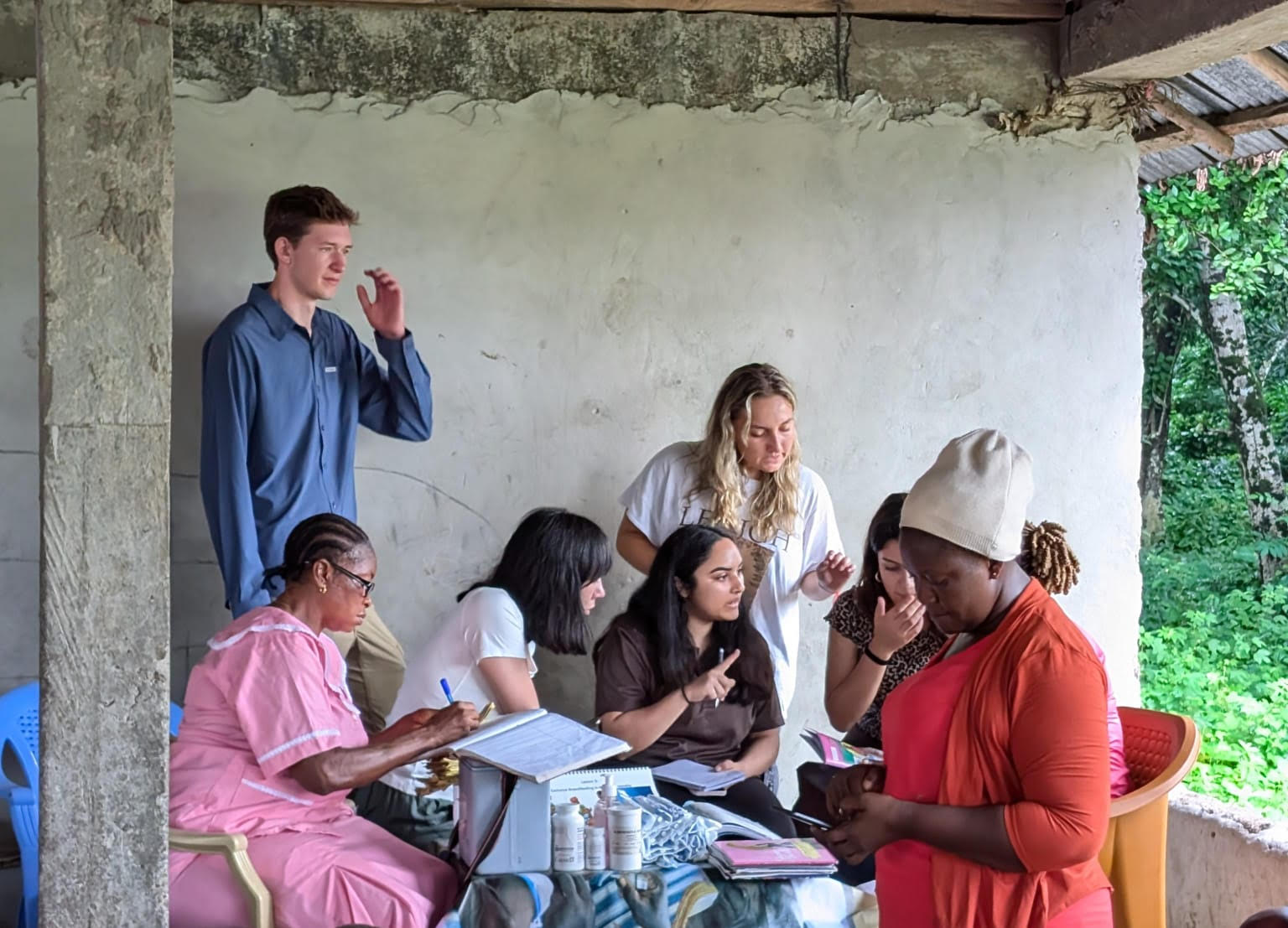
Empowering Frontline Health Workers
Global Social Impact Fellows are bringing voice-enabled healthcare solutions to Sierra Leone with support from Projects for Peace
A Global Social Impact Fellowship (GSIF) project team supported by Creative Inquiry has been awarded a $10,000 Projects for Peace award to pilot an innovative healthcare technology in Sierra Leone.
Founded by philanthropist Kathryn W. Davis, the Projects for Peace program supports student-led initiatives that promote peace and address the root causes of conflict. AISHA (AI Strengthening Healthcare Access) is one of a select group of 2025 recipients recognized for its innovative, community-driven approach to advancing global health equity.
The AISHA project is developing a low-cost, offline, voice-enabled device designed to expand access to accurate medical information, especially in clinics with limited internet or electricity. Functioning as a “talking medical textbook,” the device allows users to ask health-related questions and receive reliable, pre-vetted answers through natural speech.
With only 6.4 healthcare workers per 10,000 people, Sierra Leone faces a severe shortage of trained professionals and reliable health information. AISHA’s goal is to help bridge that gap by equipping frontline health workers with accessible and voice-driven support.
Under the mentorship of Eric Obeysekare, teaching assistant professor of computer science and engineering and creative inquiry, the team includes five Impact Fellows from last year who are continuing—Natalie Kam ‘27, Vrushti Patel ‘26, Gabriela Quinteros ‘27, Trang Tran ‘27, and Juliana Magarelli ‘27–and five 2025 Impact Fellows: Maisy Earl ‘27, Jeeva Kumararaja ‘27, Malayna Leopold ‘26, Evan Mazor ‘27, and Kudakwashe Mundove ‘G26.
This semester, the team developed a prototype device using a Raspberry Pi—a small, low-cost, single-board computer—as the foundation. The device runs a custom conversational AI platform designed to operate in Krio, the most widely spoken language in Sierra Leone. Unlike commercial products such as Amazon Alexa, which require internet access and do not support local languages, this solution is built specifically for Sierra Leone.
The goal is to make healthcare information available anywhere and anytime,” said Obeysekare. “This award allows us to validate our tool, launch field pilots, and explore long-term sustainability.
The award will support pilot testing in 10 to 15 clinics and hospitals across Sierra Leone in August during three weeks of fieldwork. It will also fund a community workshop bringing together local healthcare professionals, technologists, and community leaders to help refine the device based on real-world needs. Additional resources will go toward device manufacturing, Krio language model development, and hiring local staff to support implementation.
Team member Kudakwashe Mundove, who previously interned at a hospital in Ghana, sees the technology’s broader potential.
“I am always passionate about making healthcare information accessible to frontline workers. The award gives us the chance to test real solutions that could transform care in Sierra Leone and beyond.”

Gabriela Quinteros, now in her second year with the AISHA project, traveled to Sierra Leone last summer for fieldwork. She said the Projects for Peace funding directly addresses key limitations the team faced with earlier prototypes.
“Last year, we used Alexa devices but encountered major challenges with internet access and the lack of Krio language support,” said Quinteros. “Now, we have the opportunity to design and manufacture our own devices—affordable, functional, and truly responsive to local needs.”
Looking ahead, the AISHA team hopes their upcoming pilots will generate meaningful data and user feedback to support future funding and long-term scaling. If successful, the model could be adapted for use in other countries and languages—offering a powerful new tool for healthcare delivery in low-resource environments.
Learn more about AISHA team
